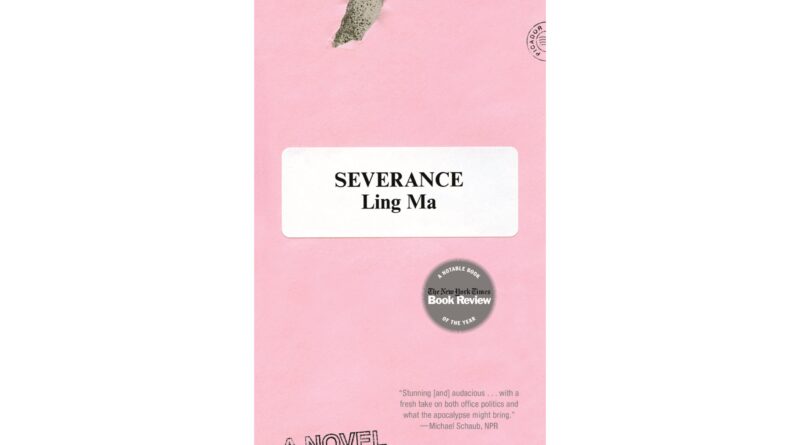Emotional, Cultural Threads Amidst a Global Pandemic” | Book Review
“For my father, I burned a Jos. A. Bank suit, and Salvatore Ferragamo wing tips to match. For more casual needs, I burned him a bunch of J.Crew clothes. I burned him some Eddie Bauer fleece jackets. Then, thinking maybe it was already too hot in the afterlife, I burned him several sweat-wicking Nike workout shirts. I burned him the latest releases in books. And, ripped from Architectural Digest, a study full of leather wingback chairs to read the books in. I burned him the latest BlackBerry and a Verizon plan. I burned him a silver Jaguar XJ. I burned him a plate of fried chicken from Bon Appétit. He loved fried chicken. It was almost all we would eat when my mother was on one of her extended trips back to Fuzhou. I burned him some Tylenol for his migraines, the afternoons when he’d lie down for hours.” — Severance, Ling Ma (2018)
As I immersed myself in Ling Ma’s novel “Severance,” a journey through a post-apocalyptic world, I found the narrative to be an intimate exploration that resonates with me personally and deeply. Published in 2018, the story follows Candace Chen, an employee at a New York City publishing company, navigating a desolate world after a devastating fungal infection alters life as she knows it.
From the outset, “Severance” captivated me with its depiction of Candace’s parents urging her towards a path she had not chosen. Although I am not an Asian American, the resonance with familial expectations and the cultural pressures to conform struck a chord. Ma deftly weaves these universal threads into the fabric of Candace’s character, creating a narrative that transcends cultural boundaries.
Candace’s grapples with her Asian American identity further enriched the narrative, offering a nuanced exploration of the complexities that arise when cultural heritage intersects with the challenges of a dystopian world. The novel presents a unique lens through which to examine the impact of societal breakdown on individual identity, with Candace navigating her Asian heritage in the face of an unraveling society.
Throughout the story, Candace’s struggle to reconcile her past with her present resonates deeply. Her memories of her parents and their immigrant experience become not only a personal journey but also a reflection of the broader immigrant experience in America. Ma’s narrative skillfully captures the intricacies of Candace’s Asian American identity, highlighting the tension between familial expectations and personal aspirations.
In the desolate landscape of post-apocalyptic New York, Candace’s journey becomes a metaphor for the resilience of identity in the face of adversity. As an Asian reader, I found myself contemplating the intersections of culture and survival, drawing parallels between Candace’s experiences and the enduring struggles that individuals from diverse backgrounds often face.
“Severance” stands out not only for its genre-defying narrative and social commentary but also for its ability to evoke a deeply personal response. Ling Ma’s exploration of Candace’s Asian American identity adds layers of complexity to the story, offering readers a chance to reflect on their own cultural narratives and the ways in which identity is shaped and tested in the crucible of societal collapse. Considering we are all students of an international school, I encourage everyone to read this book for its cultural implications and well-worded prose.

